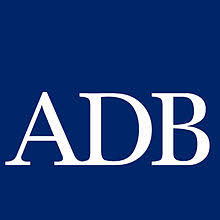Video lectures
In this series, 3ie experts provide a simple overview of core concepts in impact evaluations, systematic reviews and evidence use, drawing on examples from multiple sectors. These videos are a useful learning resource for programme managers, policymakers and students who are new to the evaluation sector.
3ie-ADB video lecture series

In 2014, 3ie and the Asian Development Bank developed a joint video lecture series as a primer for those interested in evaluations. Lectures 1-6 cover the core concepts in impact evaluations and systematic reviews. Lectures 7-15 explore how impact evaluation methods can be applied to development programmes in infrastructure, health, humanitarian relief assistance, governance, climate change, agriculture, education, social protection and microfinance.
These videos have been produced with financial support from the Asian Development Bank.
Click here to view all videos in this series
Speaker: Annette Brown, Former Deputy Director –Advancement and Impact Evaluation Services, 3ie
In this video, Annette Brown explains how you can create a valid counterfactual using randomised controlled trials and rigorously evaluate programmes. She illustrates how random assignment works in practice.
Speaker: Howard White, Former Executive Director, 3ie
Although it may be considered a challenge, infrastructure projects can lend themselves to impact evaluation methods. In this video, Howard White takes you through the different evaluation designs that can be used for assessing the impact of infrastructure programmes.
Speaker: Jyotsna Puri, Former Deputy Executive Director and Head of Evaluation, 3ie
Impact evaluations of humanitarian relief programmes are considered particularly challenging because they need to be done quickly and it may be difficult to have a valid counterfactual. Jo Puri uses case studies to show how data and methods can be innovatively used for getting around these challenges and conducting high quality impact evaluations.
Speaker: Shagun Sabarwal, Former Evaluation Specialist, 3ie
Impact evaluations have been used to assess the impact of health programmes on a host of outcomes. In this video, Shagun Sabarwal explains how a mixed-method impact evaluation was used to assess the effectiveness of a programme in Malawi and generate highly policy relevant evidence.
Speaker: Annette Brown, Former Deputy Director –Advancement and Impact Evaluation Services, 3ie
Impact evaluations can be used to answer important development questions related to democracy and governance programmes. Annette Brown illustrates how by providing new examples of different impact evaluation methods in practice.
Speaker: Markus Olapade, Former Evaluation Specialist, 3ie
Agricultural productivity in Africa is low although there are several technologies now available for increasing yields. Markus Olapade demonstrates how an impact evaluation that combines propensity score matching and difference in difference estimation was used to assess the impact of farmer field schools in East Africa.
Speaker: Jyotsna Puri, Former Deputy Executive Director and Head of Evaluation, 3ie
Although the world loses US$3-5 trillion of natural capital every year, there is not a lot of robust evidence on what works in conserving the environment and addressing climate change. In this video, Jo Puri shows how impact evaluations of payment for ecosystem services programme and protected area programmes can answer important development questions.
Speaker: Radhika Menon, Senior Policy, Advocacy and Communication Officer
Many education programmes have helped in increasing the enrolment and attendance of children in schools but there is less evidence on what works in improving learning. In this video, Radhika Menon uses an example from India to show how an impact evaluation can provide rigorous evidence on what works in improving child learning.
Speaker: Heather Lanthorn, Former Evaluation Specialist, 3ie
Conditional cash transfers are one of the most studied programmes in development economics but there is still a lot we need to learn about whether and how they work. In this video, Heather Lanthorn illustrates how an evaluation using regression discontinuity design assesses the impact of a conditional cash transfer programme on educational outcomes in Cambodia.
Speaker: Stuti Tripathi, Senior Policy Officer, 3ie
Impact evaluations can provide practitioners with useful guidance on what an intervention can realistically accomplish. Stuti Tripathi shows how impact evaluations have helped the microfinance sector introspect on where microcredit was falling short in fulfilling its mandate and contributed to innovation in programme design.
3ie video lectures
3ie continues to make resources available for those who are interested in learning the basics about evaluations. In this section you can find lectures by 3ie experts on a number of topics.
Click here to view all videos
Speaker: Hugh Waddington, Senior evaluation specialist, 3ie
Hugh Waddington explains why meta-analysis is one of the most appropriate methods for decision makers to use in policymaking. Meta-analysis is a quantitative statistical analysis of several separate but similar experiments or studies in order to test the pooled data for statistical significance. Using examples from 3ie studies on micro-credit and land reform programmes, Hugh explains how meta-analysis can help investigate a wide variety of questions, as long as there is a reasonable body of primary research studies.

